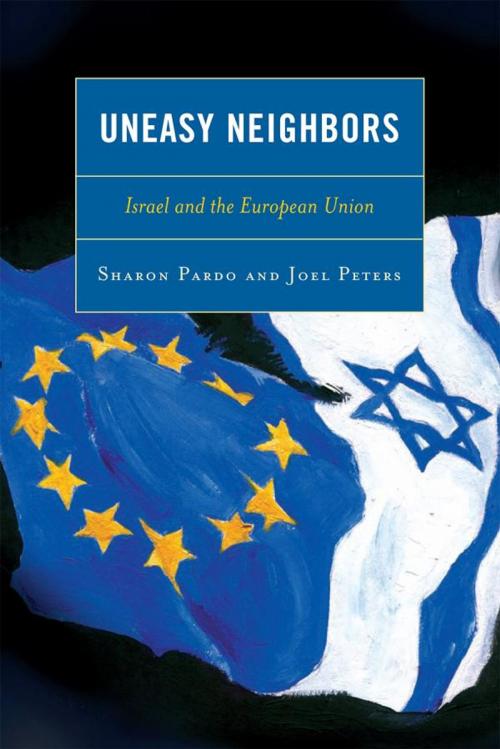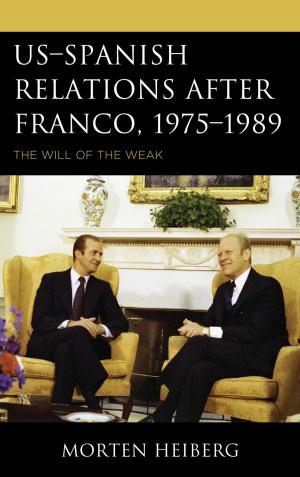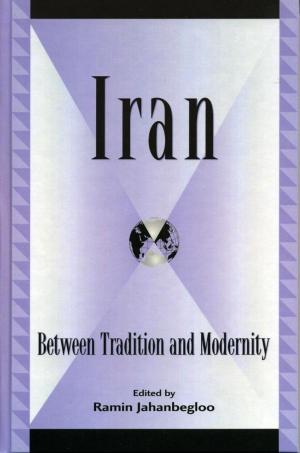Uneasy Neighbors
Israel and the European Union
Nonfiction, Social & Cultural Studies, Political Science, Government, Public Policy, International, International Relations| Author: | Sharon Pardo, Joel Peters | ISBN: | 9780739144701 |
| Publisher: | Lexington Books | Publication: | December 15, 2009 |
| Imprint: | Lexington Books | Language: | English |
| Author: | Sharon Pardo, Joel Peters |
| ISBN: | 9780739144701 |
| Publisher: | Lexington Books |
| Publication: | December 15, 2009 |
| Imprint: | Lexington Books |
| Language: | English |
Uneasy Neighbors: Israel and the European Union presents a concise and thorough analysis of significant aspects of Israeli-European relations from the late 1950s to the present day. Its primary concern is to examine major facets of the troubled Israeli-European relations, which are characterized by a love-hate relationship fueled by economic passion and occasional political hostility. This study of Israeli-European relations is important not only because it explores this unusual relationship, but also because it offers insights into how the European Union (E.U.) is actually judged by Israelis as well as serves as an important indicator of how well European intentions have been translated into observable actions in both Israel and the Middle East. In addition, Israeli-European relations reflect what has been faced by the E.U. in the process of setting-up its foreign policy instruments. In other words, the book offers both an analysis of Israeli-European relations, and an observation on the Union's emerging role as an international actor, especially in the Middle East. Despite the importance of Israeli-European relations, the subject has received relatively little attention in the fields of Israeli, European and Middle East studies, outside the context of the Arab-Israeli-Palestinian conflict. A review of the academic literature reveals a limited number of studies on Israeli-E.U. relations. This book attempts to fill this academic gap in our grasp of major aspects of this relationship. Each of the chapters reflects on different dimensions of this relationship. The emphasis is on across-the-board observations and crucial areas for the understanding of Israeli-European relations. In this regard, while the chapters were designed to add up to an inclusive study, each of them can also be read individually.
Uneasy Neighbors: Israel and the European Union presents a concise and thorough analysis of significant aspects of Israeli-European relations from the late 1950s to the present day. Its primary concern is to examine major facets of the troubled Israeli-European relations, which are characterized by a love-hate relationship fueled by economic passion and occasional political hostility. This study of Israeli-European relations is important not only because it explores this unusual relationship, but also because it offers insights into how the European Union (E.U.) is actually judged by Israelis as well as serves as an important indicator of how well European intentions have been translated into observable actions in both Israel and the Middle East. In addition, Israeli-European relations reflect what has been faced by the E.U. in the process of setting-up its foreign policy instruments. In other words, the book offers both an analysis of Israeli-European relations, and an observation on the Union's emerging role as an international actor, especially in the Middle East. Despite the importance of Israeli-European relations, the subject has received relatively little attention in the fields of Israeli, European and Middle East studies, outside the context of the Arab-Israeli-Palestinian conflict. A review of the academic literature reveals a limited number of studies on Israeli-E.U. relations. This book attempts to fill this academic gap in our grasp of major aspects of this relationship. Each of the chapters reflects on different dimensions of this relationship. The emphasis is on across-the-board observations and crucial areas for the understanding of Israeli-European relations. In this regard, while the chapters were designed to add up to an inclusive study, each of them can also be read individually.















